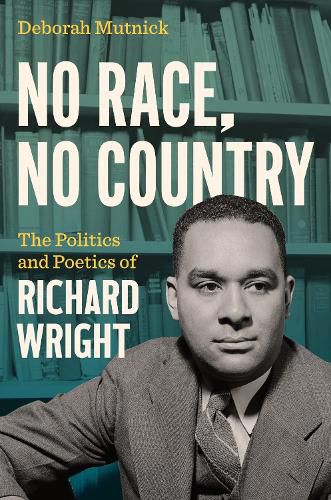Readings Newsletter
Become a Readings Member to make your shopping experience even easier.
Sign in or sign up for free!
You’re not far away from qualifying for FREE standard shipping within Australia
You’ve qualified for FREE standard shipping within Australia
The cart is loading…






No Race, No Country presents a major reconsideration of the breakthrough African American author Richard Wright's work and life. It challenges standard evaluations of his reputation as an autodidact, his late novels, his travel books, and his political commitments after he left the Communist Party USA. Deborah Mutnick engages a wide range of Wright's work throughout his career, providing a nuanced perspective on his complicated gender politics and his serious engagement with Marx's notions of historical materialism, alienation, and commodity fetishism. Adding to a small but growing number of studies of his ecological consciousness, it also examines both his closeness to nature, especially during his youth and late in life, and his early mapping of a racial geography of the "second nature" of the sociocultural world that overlaps with and transforms the natural world. Finally, it joins a recent surge in scholarship on Wright's later nonfiction as a progenitor of Black radical internationalism in the 1960s and 1970s.
$9.00 standard shipping within Australia
FREE standard shipping within Australia for orders over $100.00
Express & International shipping calculated at checkout
No Race, No Country presents a major reconsideration of the breakthrough African American author Richard Wright's work and life. It challenges standard evaluations of his reputation as an autodidact, his late novels, his travel books, and his political commitments after he left the Communist Party USA. Deborah Mutnick engages a wide range of Wright's work throughout his career, providing a nuanced perspective on his complicated gender politics and his serious engagement with Marx's notions of historical materialism, alienation, and commodity fetishism. Adding to a small but growing number of studies of his ecological consciousness, it also examines both his closeness to nature, especially during his youth and late in life, and his early mapping of a racial geography of the "second nature" of the sociocultural world that overlaps with and transforms the natural world. Finally, it joins a recent surge in scholarship on Wright's later nonfiction as a progenitor of Black radical internationalism in the 1960s and 1970s.